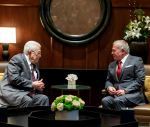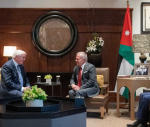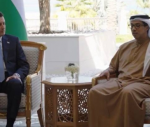Israel’s recent actions in the West Bank cannot be understood in isolation from the broader context of the escalating tensions in the region.
From an Israeli security perspective, the West Bank is one of the seven key fronts that Israel believes it must secure to prevent it from becoming a significant threat to its national security.
Having secured control over the border areas of the Gaza Strip and the Philadelphi Route, Israel is now shifting its focus to two other fronts.
The first front is southern Lebanon, where Israel aims to define the scale and scope of its conflict with Hizbollah by delivering significant strikes against the group’s leadership and logistical support areas.
The second front is the West Bank, which over the past ten months has seen intensified Israeli military and intelligence operations aimed at dismantling resistance networks and neutralising any potential threats that could turn this region into an active front.
Israel’s current manoeuvres can be interpreted within the framework of its “security geography” strategy, which aims to eliminate any potential threats from its border regions.
Since the October 7 attack, Israel has come to the conclusion that it cannot afford to live with the possibility of such an attack happening again.
The war on Gaza, which many believe was imposed on Israel following the October 7 attacks, has led to a shift in Israel’s military doctrine.
The prospect of multiple simultaneous confrontations is now seen as a reality, not merely a choice, by Israel’s security establishment.
Thus, the guiding principle in the West Bank has become to prevent any major escalation and to avoid a scenario similar to the Hamas attacks.
Israeli security officials understand that Iran’s strategy, based on the concept of “unified fronts”,poses a strategic threat to Israel.
Consequently, Israel has embarked on a gradual yet accelerated campaign to “empty and dismantle” these fronts.
Although Gaza remains the top priority, the West Bank is of equal importance from a security standpoint.
For some time, Israel has promoted the narrative that West Bank refugee camps have become hubs of Iranian influence and logistical bases for Hizbollah, ready to be triggered in a scenario targeting Israel’s interior.
This belief justifies, in the eyes of Israeli leadership, the pre-emptive strikes on these camps and the efforts to destroy their infrastructure.
In recent weeks, the Israeli foreign minister has publicly advocated for the destruction and dismantling of West Bank refugee camps, without regard for the fate of their inhabitants.
This indicates that Israeli security priorities do not consider the potential humanitarian or political repercussions of such operations.
The potential displacement of camp residents is one of the most severe consequences, yet it is a topic that few are willing to address openly.
It is likely that dealing with this issue will soon be seen as an inevitable outcome of Israel’s “facts on the ground” strategy.
Israel’s moves, driven by the “security geography” strategy and the fear of another October 7-like event, have undoubtedly emboldened those within the Israeli government who hold extreme political views.
These figures are pushing for the depopulation of the West Bank and the dismantling of refugee camps as key elements of their political agenda.
In this context and given prime minister Benjamin Netanyahu’s apparent inability to rein in these extremist ministers or control their statements and actions, these policies are likely to expand and gain broader acceptance, especially with the unprecedented level of security backing.
This complex and tangled situation will undoubtedly lead to serious internal security ramifications for both the West Bank and Israel itself.
While these consequences may not reach the level of sparking a new Intifada, they are likely to manifest in the form of new waves of violence, including armed clashes or attacks targeting Israeli infrastructure.
Amid the decreasing likelihood of a full scale confrontation with Iran and Hizbollah’s calculated responses, Israel is currently focusing on securing the borders with Gaza and targeting the infrastructure of all Palestinian factions in the West Bank.
Simultaneously, Israeli security priorities remain focused on securing the geographical borders, maintaining a high level of alert against Iran, and seizing any opportunity to strike Iranian interests in the region, whether in Palestine,Lebanon, Syria, Yemen, Iraq or even inside Iran itself.














Add new comment